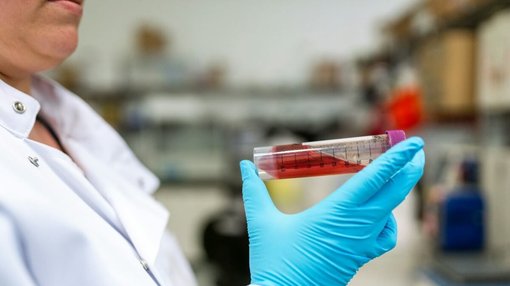Americans' Pathological Avoidance of Touch
Archive by Erudera News Mar 21, 2009

by Matthew J. Hertenstein
Associate Professor of Psychology, DePauw University
Headlines from the last few years about clergy and teachers who sexually exploit children fuel the fire against the use of touch in our places of worship, schools and society in general.
Although scientists are discovering the powerful effects that touch has on our physiology and behavior, we touch each other preciously little. With the exception of touching our closest friends and family, our society has placed significant proscriptions against touch, making the U.S. one of the lowest contact cultures. Simply put: Touch is taboo, and this has a detrimental effect on our lives.
Across America, schools are implementing state-mandated no-touch policies that not only forbid teachers from touching students, but prohibit students from touching their peers. Take, for example, a mother who reported recently that the school disciplined her five-year-old daughter for hugging a classmate because her grandmother died. It’s no longer acceptable in many schools for teachers to pat children on the back when praising them or to give a hug to elementary school children when they are sad. As the president of the National Education Association said on the Oprah Winfrey show, “Our slogan is, teach, don’t touch … In my classroom, we hug with our eyes.”
According to scientists, children are experiencing more stress today than in recent decades. Scientists also report, however, that touch reduces both physiological and perceived stress. Touch causes one’s stress hormones, such as cortisol, to decrease while causing other hormones, such as oxytocin, to increase — thus promoting social bonding and wellness. Moreover, brain regions that are activated in anticipation of stressful events are reduced when touched by another person.
Recent studies also indicate that touch can communicate such distinct emotions as love, gratitude and sympathy — just by a brief touch to the arm. Finally, studies have revealed that touch has the capacity to communicate security — something that is in low supply for many children.
In addition to schools, touch is discouraged in other spheres of life.
And perhaps nowhere is the need for touch more clear than in neonatal intensive-care units. According to a recent article published in the journal Pediatrics, one of every 12 infants born is premature, which puts these infants at risk for a number of serious medical conditions throughout their lives. Moreover, premature infants account for annual health-care expenditures of $5.8 billion.
In a seminal study, premature infants who received touch three times a day for two weeks after birth weighed 47 percent more at the end of the study and came home six days sooner than infants who were not touched. One researcher calculated that if all eligible premature infants in the U.S. received regular touch in the hospital, $4.7 billion could be saved annually.
Of course, our hesitancy to touch extends beyond our schools and hospitals. Parents in the United States provide significantly less touch to their children in everyday interaction than those in many other cultures in the world. Such non-touch behavior socializes our children to live a life “out of touch” with others. Many adults, especially those without partners, experience lives of touch deprivation. Furthermore, at the end of life, many find themselves in nursing homes where, again, touch is in high demand, but in low supply.
Obviously, touch is not a panacea for all, or even some, of our ills.
And, clearly, touch can be used inappropriately. Prohibiting harmful types of touch such as sexual abuse are imperative.
But we need to ask ourselves: What is the cost of forbidding or discouraging touch across so many domains of society? Given the overwhelming evidence that touch powerfully and positively regulates our physiology and behavior, the data suggest the cost is quite high.
Recent Articles
United Kingdom
Apr 15, 2024
United States
Apr 12, 2024
France
Apr 12, 2024
United Kingdom
Apr 11, 2024
Australia
Apr 09, 2024


